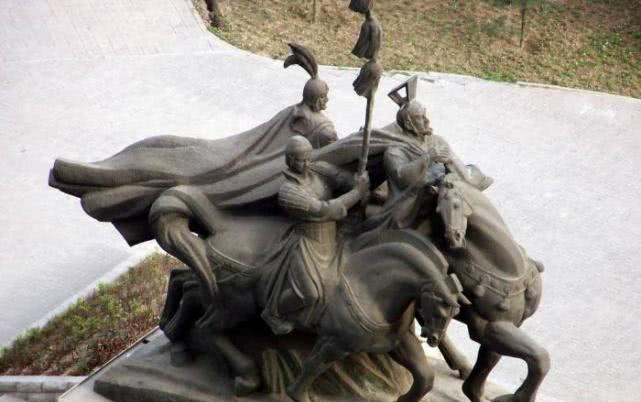Zhang Qian of the Western Han Dynasty sent an envoy to the Western Regions, and the "Silk Road" was born from then on. Since then, the Han Dynasty and various countries have gradually had exchanges, because the country is prosperous and the national strength is strong, and all countries are dependent.

In the Tang Dynasty, the economy was developed, politically stable, and the military was stronger than ever, with deterrence. Since Emperor Taizong of Tang, countries have often competed for tribute, hoping to make friends. From Japan to Persia, southeast Asian countries are more intimate.
In the Yuan Dynasty, the diplomatic atmosphere was enlightened, the social attitude was open, and foreigners often came here to do business in the coastal areas, and trade exchanges in Quanzhou were particularly frequent. There are also good adventurers who come here to travel, hoping to increase their knowledge. Marco Polo is one of them, and his travelogues make Europeans yearn for the mysterious Yuan Dynasty kingdom.
At the beginning of the Ming Dynasty, duowukou invaded, and Ming Taizu implemented a "sea ban". However, officials can still trade with overseas people and carry out tributary activities.
Ming Chengzu Zhu Di succeeded to the throne, and the Three Treasures eunuch Zheng He led a fleet of ships to the West. Many countries along the way were shocked and attracted by Daming's unique style, and their king decided to submit to Daming, and also followed Zheng He's fleet to Daming to pay tribute, and the Sulu delegation was among them.
The Sulu Kingdom is based on the Sulu Islands in the Philippines, which collapsed in 1915, the theocratic unity, the implementation of Islam as the state religion of the chieftain system, there are three kings of the East King, the West King and the King of the East king is the most powerful.
In the fifteenth year of Ming Yongle (1417 AD), the Eastern King of Sulu, Batu Gedala, the Western King Maha La Ge Ma Ding, and the King of Batu Ge Labu, the King of Sulu, carried more than 340 relatives and retinues to Daming to see him. This was the largest number of missions. The Ming Dynasty received warm hospitality and generous treatment, and the Yongle Emperor gave generous gifts.
The Sulu delegation was attracted by the scenery of Daming and folk customs, and after 27 days of playing in Beijing, it lingered and returned to China. Traveling to Anling, Dezhou, Shandong Province, the Eastern King Badu fell ill and died. The envoys played the Yongle Emperor. Ming Chengzu was so grief-stricken that he sent Chen Shiqi to Dezhou to hold a funeral for the Eastern King, and to build a mausoleum in a selected place in The City of Dezhou, with a grand scale, and Ming Chengzu personally wrote a eulogy for the Eastern King.
In addition to the eldest son Tuoma returning to China with other personnel to succeed to the throne, Princess Ge Muning, the second son Wen Hala, the third son Andulu and more than ten other people stayed behind to guard the tomb. With the passage of time, these Sulu people have combined with the people of Heming and integrated into local customs and customs. In the ninth year of the Yongzheng Dynasty of the Qing Dynasty, he was given the surname "An" and "Wen".